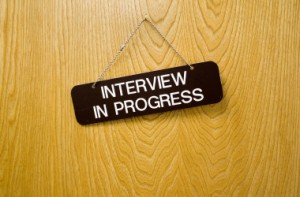 There is a great nursing shortage in the United States of America presently. However, if you feel that since there’s a huge job shortage, you can easily land that plum job you’ve been eying, think again. Hospitals and health care services are extremely selective when it comes to selecting the right nursing staff. After all, the health of their patients and the reputation of their health center depend on the quality of the staff they hire. Read more to understand what hospitals and health care facilities look for in a nurse, and prepare for your next interview accordingly.
There is a great nursing shortage in the United States of America presently. However, if you feel that since there’s a huge job shortage, you can easily land that plum job you’ve been eying, think again. Hospitals and health care services are extremely selective when it comes to selecting the right nursing staff. After all, the health of their patients and the reputation of their health center depend on the quality of the staff they hire. Read more to understand what hospitals and health care facilities look for in a nurse, and prepare for your next interview accordingly.
Pay Attention To Your Clothing
You could well be the next Florence Nightingale. However, if you don’t look the part, you’ll be conveying you don’t fit the part. Your credentials, high NCLEX marks or great recommendations will not help you if you come to the interview dressed shabbily. Sadly, nurses don’t seem to realize that the overall package is important, even for a nursing career.
A sloppily dressed nurse does not give off the impression of efficiency and will not gain the trust of patients or doctors. First impressions are lasting; if you are serious about your career, invest in a few smart professional suits and combine them with decent shoes. Keep your hair in place and use only minimal makeup. Don’t wear loud jewelry.
Be Composed and Professional
Your body language says a great deal about the kind of person you are. Remember that whoever is interviewing you is also watching the cues your face and body give off. Keep your handshake firm, your smile pleasant and gaze steady. Don’t cross your arms or lean against the table. Keep your voice firm and energetic. These gestures reveal how you will interact with future patients. The more poised you appear, the more confidence your interviewer will have in you.
A nurse has to handle many unfamiliar and at times downright frightening scenarios in his or her career. Your interviewer will be looking for someone who won’t be easily rattled at the questions, and who’ll keep their poise steady and tempers cool even when provoked.
Show Your Enthusiasm
Do you love your chosen career? Is nursing what you’ve always wanted to do, or did you just step into it because there’s job opportunity? These are some of the things your interviewer will check. They will look for true passion and enthusiasm for the nursing field in you. Your interviewer will be impressed if you can offer something unique, such as a mission statement. It could be that you like working with children and ease their pain.
Bring out your passion in this area and let your interviewer feel your dedication. Ask about the hospital or health care organization, and appear eager to know more about the kind of services that are provided there. Demonstrate your eagerness and ability to interact with people, which is what nursing is about. Even if you don’t have years of experience, your eagerness, enthusiasm, poise, appearance, and confidence will get you the job.
Keep Your Phone Silent
A person who’s taking the time to interview you is performing a critical job for his or her organization. Respect that person’s time and focus completely on the interview. Keep your cell phone, pager and any other hand held device switched off.
A ringing phone poses a distraction; that apart, the fact that you haven’t bothered to switch off your phone indicates that you don’t respect the interviewer’s time. It also demonstrates that you are not fully present for the interview.
Do Your Homework
Your intent is to land a good job at a good hospital. However, your interviewer will be keen to know why you want to work at their hospital. Be sure to do some preliminary research about the hospital beforehand. Read the hospital’s mission statement and any articles that talk about the hospital. Study any information that you can find about the hospital.
You don’t have to start spewing facts to show off how much homework you’ve done. However, when asked why you want to work there, be ready to answer in simple and confident terms that you are impressed with so and so initiatives and that you want to be a part of them.
You Can Ask The Questions Too!
An interview is a two way street. Even as you’re being asked questions, you have the right to ask questions as well. However, wait until your interview is over and ask permission to bring up a few questions.
Asking questions is your way of finding out information that your research did not provide. Also, when you ask questions, you demonstrate your intelligence and keenness. Here are some topics on which to base your questions:
- Orientation program for nurses and its duration
- The method and frequency of performance evaluations
- The hospital’s policy for nurses who want to continue education
- Retirement plan and employer contribution to the plan
- The availability of nurse educators
- Shift timings, holidays and other details